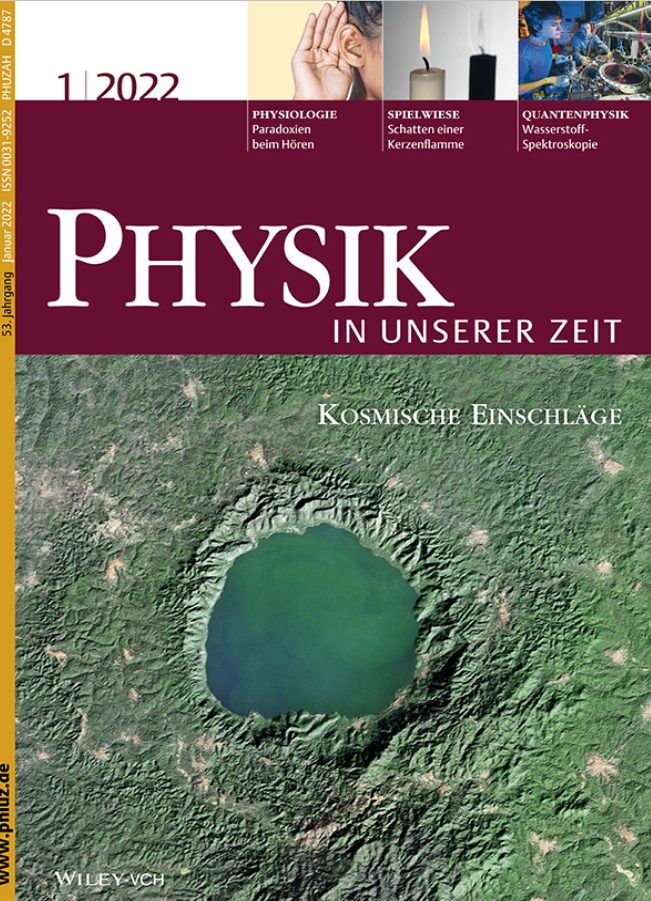
Dealing with auditory oddities and ambiguities is not only entertaining, it is also an important driver for basic auditory research. The same acoustic stimulus can actually be perceived in different ways. We not only hear “with our ears”, but various other physical, physiological and cultural factors also play an important role. This directly gives rise to broader philosophical questions, for example on perception – and the enduring appeal of pieces of music is also based in many places on such ambiguities [13].
Physik in unserer Zeit 53(1): 28-34.